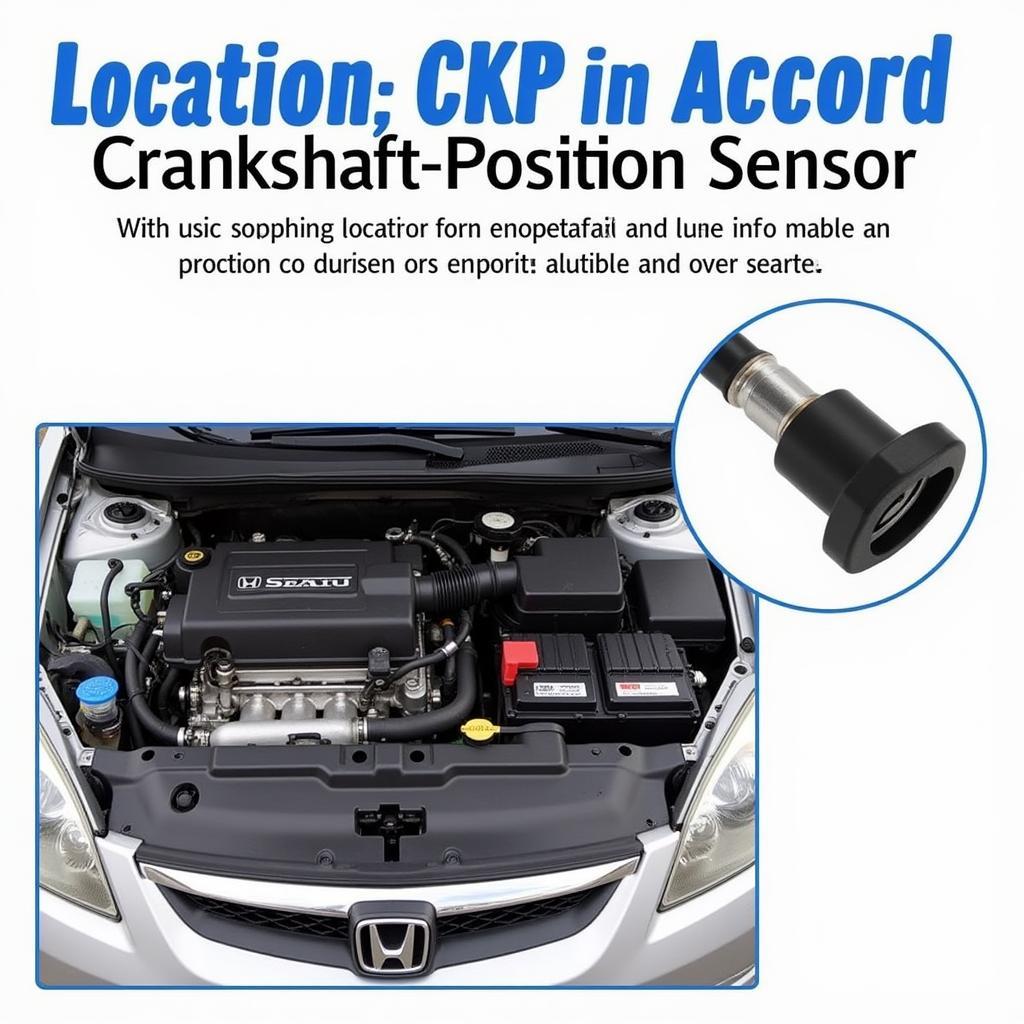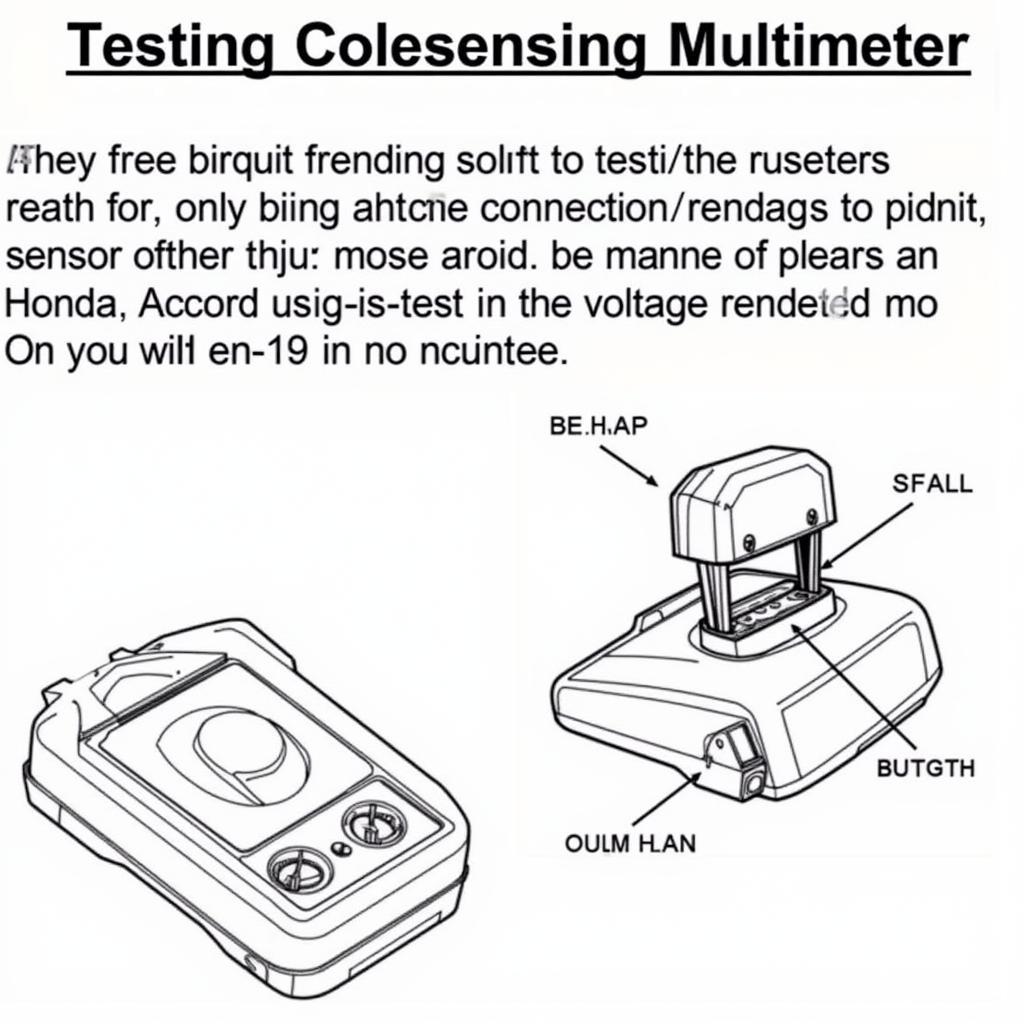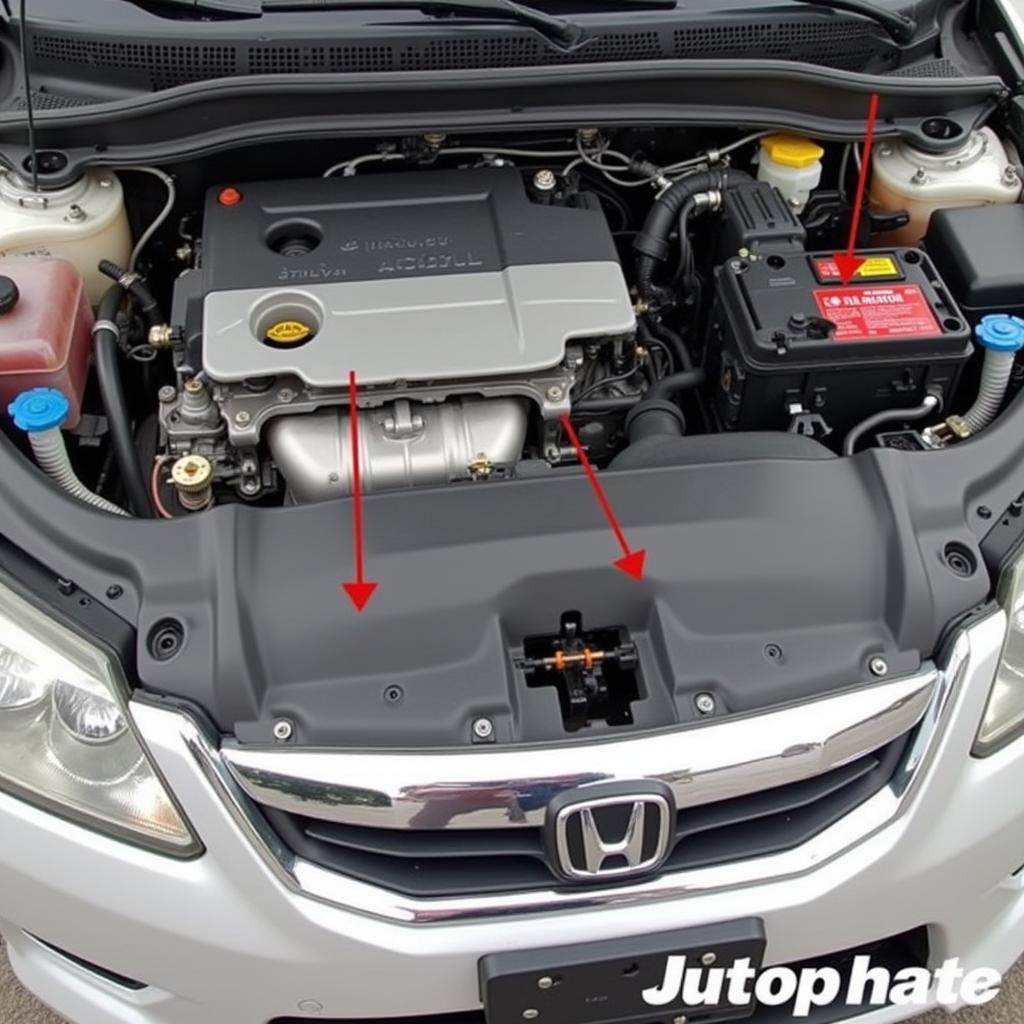A 2003 Honda Accord hitting 7000 RPM on a scan tool can indicate a serious problem. This article will delve into the possible causes, diagnostic steps, and solutions for this issue, helping you understand what a 7000 RPM reading on your scan tool means for your 03 Honda Accord.
Decoding the 7000 RPM Reading on Your 03 Honda Accord
Seeing 7000 RPM on your scan tool while your 2003 Honda Accord is idling or driving at a much lower RPM is a clear sign that something isn’t right. This high RPM reading doesn’t necessarily mean your engine is physically revving that high. Instead, it often points to a problem with the sensor data being relayed to your scan tool. Several factors can contribute to this issue, ranging from a faulty sensor to wiring problems. Understanding these potential causes is crucial for accurate diagnosis and effective repair.
Common Causes of a False 7000 RPM Reading
A false 7000 RPM reading on your scan tool can be triggered by several issues. One of the most common culprits is a malfunctioning crankshaft position sensor (CKP). The CKP sensor is vital for determining the engine’s speed and position. A faulty sensor can send incorrect signals to the engine control unit (ECU), leading to inaccurate readings on your scan tool. Another potential cause is a problem with the wiring harness connecting the CKP sensor to the ECU. Damaged or corroded wires can disrupt the signal transmission, resulting in the erroneous 7000 RPM reading. Additionally, issues within the ECU itself can also cause this problem, although this is less common.
 2003 Honda Accord CKP Sensor Location
2003 Honda Accord CKP Sensor Location
Diagnosing the 7000 RPM Issue on Your Honda Accord
Diagnosing the root cause of the 7000 RPM reading requires a systematic approach. Begin by visually inspecting the CKP sensor and its wiring harness for any signs of damage, such as cracks, breaks, or corrosion. If any damage is evident, replacing the sensor or repairing the wiring is usually the solution. If no visual damage is found, using a multimeter to test the CKP sensor’s output voltage can help determine its functionality. Comparing the measured voltage with the manufacturer’s specifications can confirm whether the sensor is operating within the expected range.
Troubleshooting and Solutions for 03 Honda Accord 7000 RPM on Scan Tool
Once you’ve identified the source of the problem, addressing it effectively is crucial. If the CKP sensor is faulty, replacing it with a new, high-quality sensor is recommended. Ensure the new sensor is compatible with your specific 2003 Honda Accord model. If the wiring harness is damaged, repairing or replacing the affected wires is necessary. In rare cases where the ECU is faulty, replacing or reprogramming the ECU might be required. This is a more complex procedure and might require professional assistance.
 Testing CKP Sensor on 2003 Honda Accord
Testing CKP Sensor on 2003 Honda Accord
What if the Problem Persists?
If the 7000 RPM reading persists even after replacing the CKP sensor and checking the wiring, it’s advisable to consult a qualified mechanic specializing in Honda vehicles. They have the expertise and diagnostic tools to identify and address more complex issues that may be causing the problem.
 Honda Accord ECU Location
Honda Accord ECU Location
Conclusion: Resolving Your 03 Honda Accord’s 7000 RPM Issue
Addressing a 7000 RPM reading on your scan tool for your 03 Honda Accord requires a thorough understanding of the potential causes and a systematic diagnostic approach. By focusing on the crankshaft position sensor, wiring harness, and ECU, you can effectively pinpoint the problem and implement the appropriate solution, ensuring your Honda Accord runs smoothly and reliably.
FAQ
- What does a 7000 RPM reading on a scan tool mean? A 7000 RPM reading often indicates a faulty sensor, wiring issue, or ECU problem, not necessarily that the engine is actually revving that high.
- Can a bad CKP sensor cause a high RPM reading? Yes, a faulty CKP sensor can send incorrect signals to the ECU, resulting in a false high RPM reading.
- How do I test a CKP sensor? You can test a CKP sensor using a multimeter to measure its output voltage.
- What should I do if the 7000 RPM reading persists after replacing the CKP sensor? Consult a qualified mechanic for further diagnosis.
- Where is the CKP sensor located on a 2003 Honda Accord? The CKP sensor is typically located near the crankshaft pulley.
- Is it safe to drive with a faulty CKP sensor? It’s not recommended to drive with a faulty CKP sensor as it can lead to performance issues and potential engine damage.
- How much does it cost to replace a CKP sensor? The cost varies depending on the specific model and labor rates, but it is generally a relatively affordable repair.
Need Help?
For assistance with your car diagnostic needs, please contact us via WhatsApp: +1(641)206-8880, Email: [email protected] Or visit us at: 276 Reock St, City of Orange, NJ 07050, United States. Our customer support team is available 24/7.


